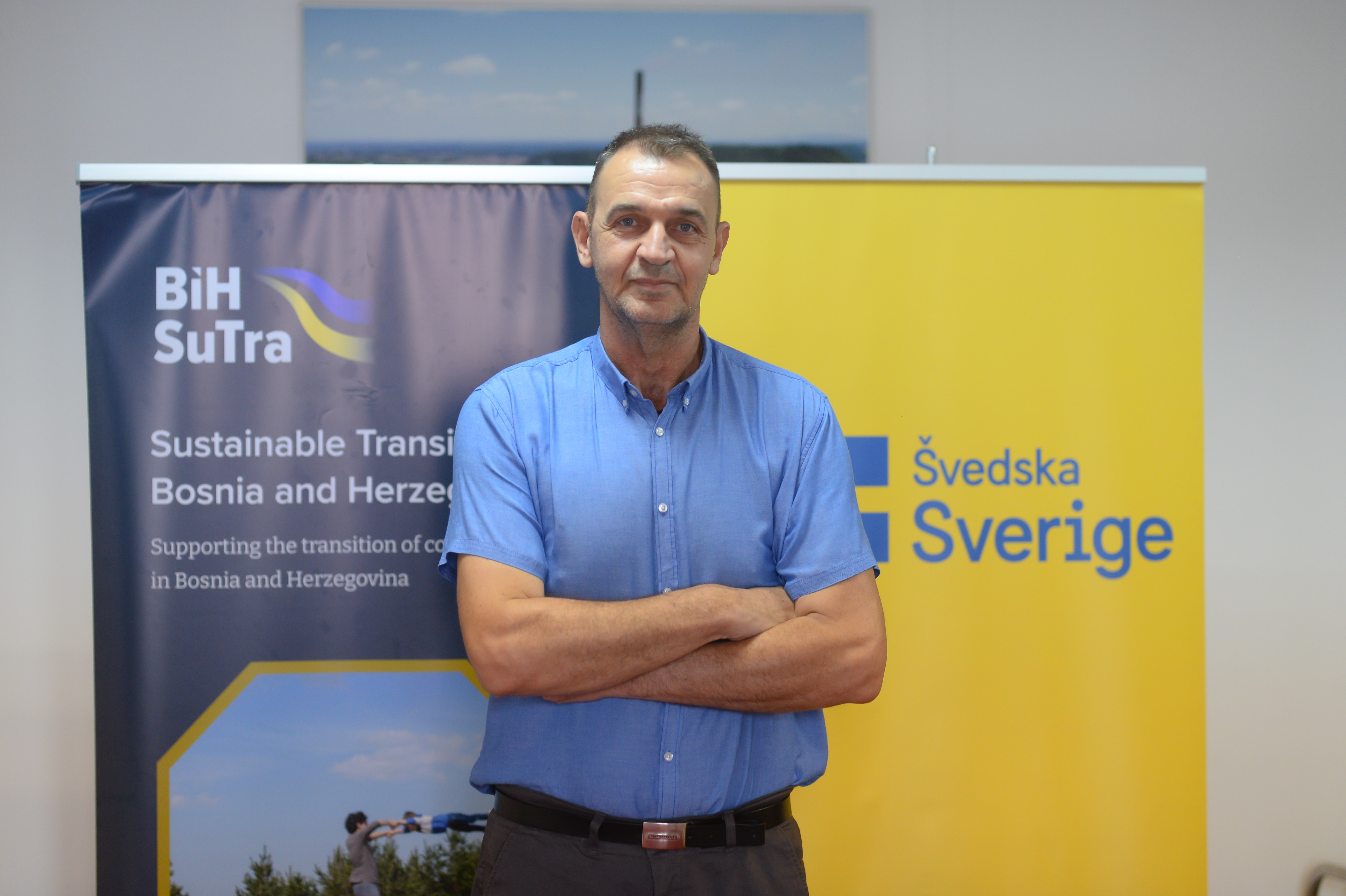 Milorad Jovičić, Head of the Mayor's Cabinet in Municipality of Ugljevik, Photo: Foto Tomić, Bijeljina.
Milorad Jovičić, Head of the Mayor's Cabinet in Municipality of Ugljevik, Photo: Foto Tomić, Bijeljina.
 Milorad Jovičić, Head of the Mayor's Cabinet in Municipality of Ugljevik, Photo: Foto Tomić, Bijeljina.
Milorad Jovičić, Head of the Mayor's Cabinet in Municipality of Ugljevik, Photo: Foto Tomić, Bijeljina.
The Municipality of Ugljevik has been selected as one of the four local self-government units for the implementation of activities under the BiH SuTra programme. The primary objective of the programme is to facilitate the sustainable transition of Bosnia and Herzegovina by creating and implementing effective measures and regulations at the local level, thus improving living conditions for citizens in municipalities and cities located in mining regions. We talked to the Milorad Jovičić, Head of the Mayor's Cabinet in Municipality of Ugljevik, who is involved in the programme, to hear more about their thoughts and ideas for a sustainable transition.

Milorad Jovičić, Head of the Mayor's Cabinet in Municipality of Ugljevik, Photo: Foto Tomić, Bijeljina.
In your opinion, what are the main opportunities that local communities will encounter when transitioning to a more sustainable society? Are there any key challenges, and how do you plan to manage these?
One of the main pathways toward achieving a more sustainable society involves developing tourism, a sector that is increasingly significant globally. Central to this effort is fostering a clean and healthy environment, which necessitates creating conditions for economic growth and entrepreneurial development. This includes promoting clean agriculture, organic production, and enhancing primary agricultural processes. These sectors are important in shaping favorable living conditions and fostering sustainability. However, the most pressing challenge lies in addressing employment issues, ensuring quality jobs across diverse fields, and cultivating a mindset that encourages entrepreneurship and innovation.
How will you make sure that the benefits of the transition are distributed fairly across different demographic groups within the community?
Ensuring equitable distribution of benefits across different demographic groups presents a significant challenge. Beyond fostering a sustainable society economically and environmentally, it is crucial to establish conditions for greater societal equality. This includes combating prevalent issues like corruption and promoting gender and religious equality and social equity in general. The responsibility lies with local communities to create conducive environments and enact legal regulations. They should propose initiatives to higher levels of government and devise diverse solutions aimed at achieving the fair distribution of benefits.
Can you discuss the role of education and awareness-building for a sustainable transition to take place? Can you give any concrete examples how it might play a role?
The education system plays a crucial role, particularly as it predominantly impacts young people. Local communities bear the responsibility of educating children and youth about the importance and necessity of transitioning towards sustainability through various educational activities. This includes raising awareness about the significance of maintaining a clean and sustainable environment, as well as fostering a sustainable society overall. Collaboration between local communities and higher levels of government is essential to influence and shape curricula in these areas. This ensures that these issues are systematically addressed and integrated into educational frameworks.
As part of the BiH SuTra programme, the preparation of the Transition Plan for the Municipality of Ugljevik is underway. The plan will incorporate suggestions from community members gathered through an online survey. Could you provide insights into the current stage of the preparation of the Transition Plan, and share any challenges and opportunities encountered during this process?
Based on the initial information and a review of the Transition Plan materials, it is evident that the plan is well-conceived and comprehensive, offering systematic solutions. However, the greatest challenge lies in the ending of mining and thermal power plant operations and ensuring the livelihoods and employment of the local population. This issue is particularly complex and unpredictable, potentially leading to depopulation despite efforts towards a clean and healthy environment. Given the proximity to major economic centers like Tuzla and Bijeljina, as well as borders with Serbia and Croatia, the situation presents significant economic risks.
Addressing this challenge is paramount. Finding viable employment solutions and encouraging local residents to explore alternative opportunities are crucial steps. Creating conditions for the growth of other economic sectors, particularly entrepreneurship, could positively impact the region's future.
Next steps for the four local communities
The final transition plans will contain an estimate of financial resources for implementing each proposed measure for the five development pathways. Based on this, the municipalities of Banovići, Breza, and Ugljevik, and the City of Živinice will prioritize measures in accordance with available financial and human capacities. The BiH SuTra programme, with the support of the Stockholm Environmental Institute (SEI), will support the implementation of two priority (non-infrastructural) measures in each programme unit. This will take place after the adoption of operational three-year plans, in accordance with existing legal regulations, as an integral part of the transition plans.
Discover the News and Updates section, delivering the latest updates and insightful content across various topics. Stay informed with most recent news articles, reports, and publications, of the BiH SuTra project.